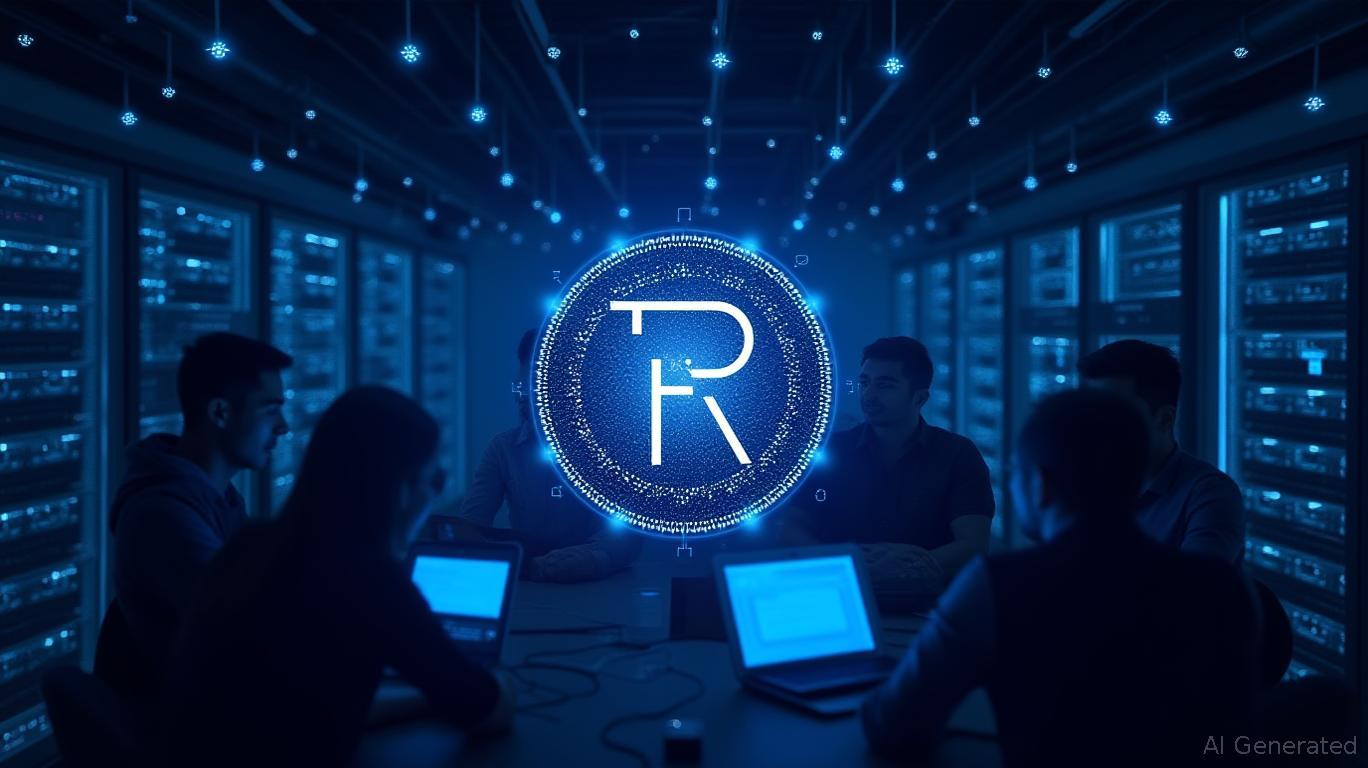Hong Kong's KYC Requirement Sets Regulation in Opposition to DeFi Advancement
- Hong Kong's new stablecoin KYC/AML rules, effective August 2025, require identity checks for all holders and licensing for issuers, diverging from blockchain's anonymity norms. - DBS Hong Kong CEO Sebastian Paredes warns these regulations could stifle DeFi innovation by deterring stablecoin integration into decentralized derivatives platforms. - HKMA mandates 100% high-quality reserves, real-time redemption, and Basel-like liquidity buffers for stablecoin issuers, raising compliance costs and favoring la

DBS Hong Kong has cautioned that the city’s strict stablecoin Know Your Customer (KYC) and Anti-Money Laundering (AML) rules, which will be enforced starting August 1, 2025, may greatly limit the use of stablecoins in onchain derivatives trading. CEO Sebastian Paredes explained that these regulations require all stablecoin holders to verify their identities and mandate that issuers obtain licenses, creating a regulatory landscape that contrasts sharply with the usual anonymity and flexibility of blockchain assets. The Stablecoins Ordinance, introduced by the Hong Kong Monetary Authority (HKMA), aims to reduce financial crime by requiring licensed issuers to keep 100% high-quality reserves, allow real-time redemption at face value, and comply with liquidity and capital standards similar to Basel rules. While these steps are designed to promote stability, critics argue they could hinder innovation within decentralized finance (DeFi) sectors.
The updated rules also require stablecoin issuers to be listed in a public registry and undergo thorough audits, with penalties for those who fail to comply. As of July 2025, the HKMA noted that no licenses had been granted, advising market participants to be wary of unlicensed tokens. Paredes stated that DBS Hong Kong will focus on expanding stablecoin services within the regulatory framework rather than prioritizing derivatives, acknowledging the limitations set by the new rules. The regulations demand that every stablecoin user complete KYC checks, which is a significant shift from international standards where such checks are usually limited to exchanges or custodians. This policy has sparked concerns about scalability and user adoption, especially for DeFi protocols that depend on pseudonymity for onchain derivatives.
The consequences for
Hong Kong’s regulatory stance is similar to measures in the U.S. and Singapore, which also seek to apply banking-style controls to stablecoins. However, Hong Kong’s rules are among the strictest, requiring issuers to keep cash or short-term Treasuries in separate accounts and maintain leverage ratios below 2%. Some analysts believe these obligations could raise capital costs for stablecoin ventures, potentially giving an advantage to larger institutions with strong compliance systems over smaller startups. The HKMA’s move to require real-time redemption and liquidity coverage ratios, in line with Basel III, signals a broader trend of treating stablecoins as systemic risks comparable to traditional banks.
Industry experts remain split on the lasting effects of these regulations. Supporters claim the rules strengthen financial security and align with international efforts to combat stablecoin-related fraud, while detractors warn they could reduce DeFi market liquidity and push activity to less regulated regions. The HKMA has indicated it will take a selective approach to licensing, expecting only a few issuers to meet the tough standards. This could lead to further consolidation in the stablecoin sector, with major players dominating and smaller projects either leaving the market or partnering with licensed firms. For now, Hong Kong’s regulatory climate highlights the ongoing struggle between fostering innovation and ensuring oversight in the fast-changing crypto world.
Disclaimer: The content of this article solely reflects the author's opinion and does not represent the platform in any capacity. This article is not intended to serve as a reference for making investment decisions.
You may also like
Hashdex Crypto ETF Expands to Add XRP and Solana
Quick Take Summary is AI generated, newsroom reviewed. Hashdex ETF now includes XRP, Solana, and Stellar. SEC’s new rules make ETF approval faster and easier. Investors gain safe access to five big cryptocurrencies. Move could attract more big and small investors.References Hashdex is expanding its crypto ETF to add $XRP & #Solana, after the SEC approved broader listing standards.
Vanguard Considers Launching Crypto ETFs as Regulatory Barriers Fall and Competitors Move Forward
- Vanguard, managing $10T in assets, plans to offer crypto ETFs via third-party options, reflecting rising demand and U.S. regulatory easing. - The SEC's 2024 rule changes reduced crypto ETF approval times to under 75 days, spurring a surge in filings and projected 2025 Q4 market "boom." - Unlike rivals like Fidelity, Vanguard prioritizes regulatory clarity over in-house crypto products, aligning with its cautious "methodical" approach. - Institutional Bitcoin ETF holdings rose 33% in 2025, with Vanguard's

LYS Labs Reduces Data Bottleneck by 70% Using 14ms Solana Analytics
- LYS Labs completes Phase 1 of its Solana data infrastructure, delivering 14ms latency insights to enable real-time trading and DEX analytics. - The firm launches LYS Flash, a 36ms transaction execution tool that abstracts DEX complexities and reduces settlement times through smart relay technology. - Developer adoption surges with 620+ active users and 16B processed events, supported by a seed round featuring Alchemy Ventures and Chainlink collaboration. - LYS aims to cut on-chain data bottlenecks by 70%

Riot Platforms Shifts to AI, Capitalizes on Mining Resources, Secures Upgrades from JPMorgan and Citigroup
- Riot Platforms secured upgrades from JPMorgan and Citigroup in late September 2025, citing its strategic shift to AI and HPC infrastructure. - Analysts highlighted Riot’s 700 MW Texas facility and potential $3.7M-$8.6M/MW colocation deals as key value drivers, contrasting with downgraded peers IREN and CleanSpark. - The stock rose 5.32% pre-market despite sector declines, with JPMorgan projecting margin boosts from transitioning to infrastructure-as-a-service. - Riot’s pivot exemplifies miners repurposin
